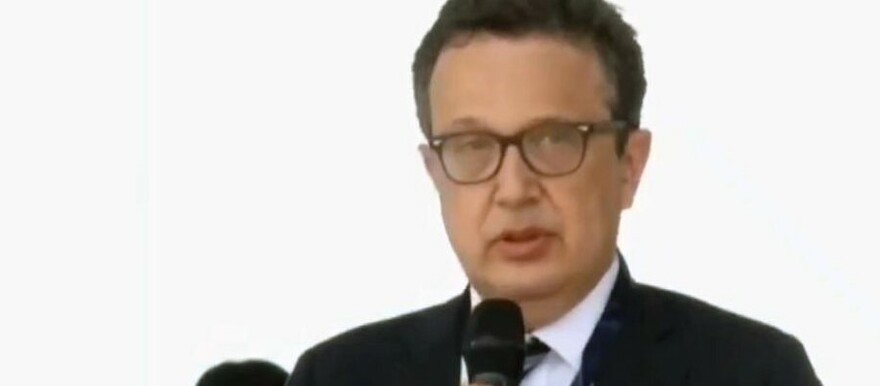The United States envoy to South Sudan has called on South Sudan’s leaders to ensure accountability, transparency and uphold human rights for a conducive environment for the development of the country.
Speaking during the 10th anniversary of the American Corner at the University of Juba on Tuesday, Ambassador Michael J. Adler also urged the leaders to show political will and implement the peace agreement.
“The American Corner is a place to learn and exchange ideas. I too would like to see an environment more conducive to traditional development assistance, more conducive to international investment. But that environment does not exist and will not exist until certain fundamental principles are addressed,” he said. “One is respect for human rights, two is the accountability of those who violated human rights, three is transparency in the use of public resources so they are used for the benefit of the people, four is a sign of the clear political will to meet peace commitments so the transition period can come to a successful conclusion.”
“There is ever desire on the part of the American people and the U.S. government to see these things achieved,” Amb. Adler added.
He said the U.S.’ efforts in South Sudan have always been geared toward supporting the ability of the people of South Sudan to achieve a future of peace, security, prosperity, and democracy.
“And those foundational values, which have been part of our commitment on the onset, remain as strong as ever and I assure you can continue to count on us to speak candidly and directly about them for as long as necessary,” the envoy said.
For his part, Prof. John Akec Apurout, the Vice Chancellor of the University of Juba, decried the impact of targeted sanctions and the arms embargo on South Sudan.
“Paradoxically, the U.S. has been leading the economic sanctions against the new country (South Sudan),” he charged. “The sanctions are allegedly targeting the politicians in the government, however, they are hurting even the most sincere entrepreneurs. You cannot buy books in Europe and transport them to South Sudan, except if they come as NGO donations.”
“We are really confused about the kindness of the U.S. in helping us attain our independence and its position which now does not help the new country to grow and develop and stand on its feet,” Prof. Akec added.
He wondered how the Transitional Government in South Sudan can deploy the unified forces without the help of the United States.
“I am not an apologist and it is known how critical I am on so many things but I do care for this country. I see serious contradictions in the role of the U.S. In one way it is supposed to be a friend, build relationships as it did with Israel, Korea, and Taiwan but some of the policies are hindering that,” Prof. Akec said. “I want to invite the U.S. Embassy to work with the University of Juba to see how relations between the U.S. and the Government of South Sudan can improve, not for the benefit of the regime, but for the benefit of this great nation.”




